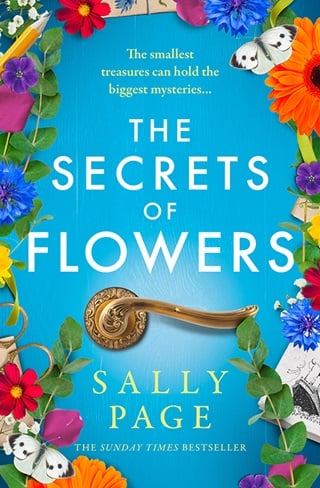Chapter 73
Chapter 73
Violet
Dahlias
If walking among the flowers of the Pampas is her beginning, she hopes walking among the flowers of her own small garden will mark her ending.
She is an old woman now. Her hair is grey, and she feels the wear and tear from years of fetching and carrying deep in her joints. She likes to think she has lived a full life, rich with travel, friendship and family– even if she did not have her own children to care for, nearby she has her sister and her nieces and nephews.
Over the years, unwanted memories have stalked her. She has learnt that she cannot outrun these but she can move more erratically than they can. She can spin on a heel and dodge into a distracting thought or pinch her weary limbs and force them into action– get up, turn the radio on, make a cup of tea, walk in the garden to greet the dawn.
Sometimes the memory of The Purser comes, unbidden, on these early morning walks. He asks her how her flowers are doing, and she invites him to follow her to see how glorious the dahlias are this year. The thought of flowers helps divert her from the sadness that, in the early years, felt like it might tear her in two.
Sometimes, the memories get tired of playing the stalking game, and they lie in wait to ambush her. Like the night when she was poised on the top step of the stairs down into the London underground. The air-raid warning was sounding and she was holding on to the handrail, jostled by those pushing past her. She was paralysed by fear. Should she go down below or stay up in the freezing night air? This way? That way?
She stood there, a middle-aged woman, terrified, unable to move, not knowing which decision would save her– which would kill her.
She watched a mother carrying a toddler in a clumsy embrace, dragging another child by the arm of his coat. Their gas masks were bouncing against the older child's head as they descended, and he let out a whine of protest. They were a bumping bundle of old wool coats and trailing mittens, but the mother's legs were solid and steady; she did not rush the steps but took them one at a time.
She felt her own mother in that noisy, measured progress, and her limbs unlocked and she took the first step down.
A young man– really only a boy– knocked her elbow, and for a brief moment he turned his face to hers in apology. His girl was by his side– dark hair swept up, holding tight to his arm. Her scented fragrance drifted through the cold night air– floral and exotic, reminiscent of an abundance of flowers.
Then she saw them: her friend the bar steward sitting alone on a deckchair, staring down at the packet of cigarettes in his hand, no doubt thinking of his new baby; the bellboy kicking at some ice on the deck, running, hands aloft as if he had scored a goal; one of the boys from the band saluting her as he passed, earnestly, studiously carefree; her friend with a sweet pea hat in his hand, his face white and taut– just a boy's face, really.
What was going to happen to the young man who passed her on the steps? Would he live to be an old man, doing the football pools, working his allotment, married to his girl, playing with their grandchildren? Or would he be caught in an air raid or be wounded on some battlefield, calling for his mother as he died? She knew even old men cried for their mothers.
She sank down until she was sitting on the steps to the underground, her face wet with tears.
At times, she has found herself repeating certain words in her head: we didn't know, we didn't understand.
Once, standing alone in a field near her sister's house, she shouted the words out loud. She was thinking of the lifeboats swinging away from the deck only half full, of those same boats pulling away from dark shapes in the water.
We didn't know, we didn't understand. The words are not enough.
She is grateful her lifeboat was almost full, but there is still guilt.
She knows you cannot choose the time you die. Death takes the young and the old.
But still there is her own guilt. The guilt of simply living.
Over the years she has found her way with the living and with the dead. When the worst memories invade her dreams and she wakes up sweating, there is one memory she reaches for. It is a talisman against the darkest of the horror. She remembers the warmth of a small body held close to her and the powdery scent of a downy head against her cheek. As usual, her mother had been right: children could be a precious gift.
She never knew the baby's name. When they at last reached the Carpathia and her feet were firmly upon the deck, a woman rushed forward and grabbed the baby from her. Afterwards, she thought it was odd that the woman did not thank her. Later, when the nightmares came, she thought it was odd she did not thank the baby's mother.
Now she rises from her chair and walks across her kitchen. It is time to water her roses, and she hopes there will be some new sweet peas to pick. She may be an old lady– she may move slowly as she unlatches the door and reaches for her battered sun hat– but in her mind she is still a young woman, still the age she was when she first stepped aboard the most magnificent ocean liner the world had ever seen.
 Fullepub
Fullepub 



